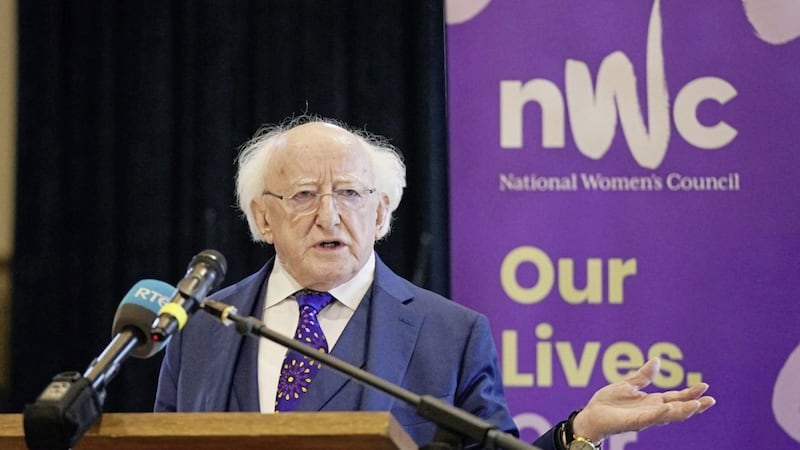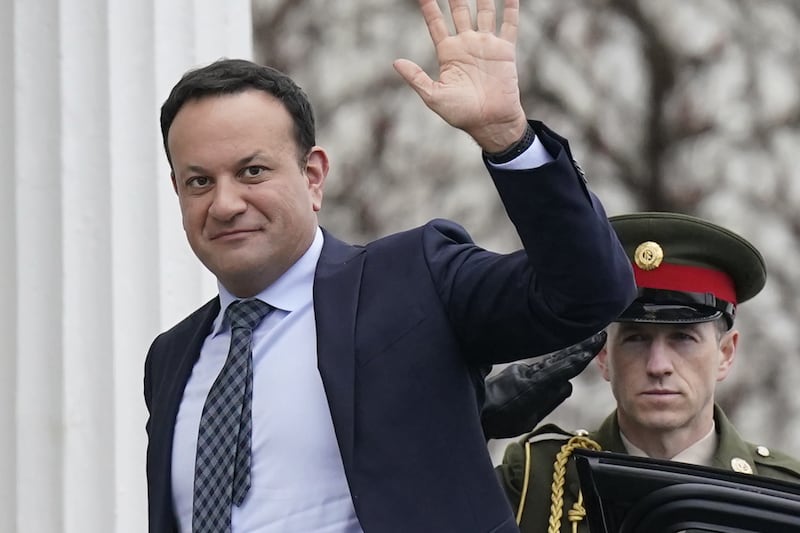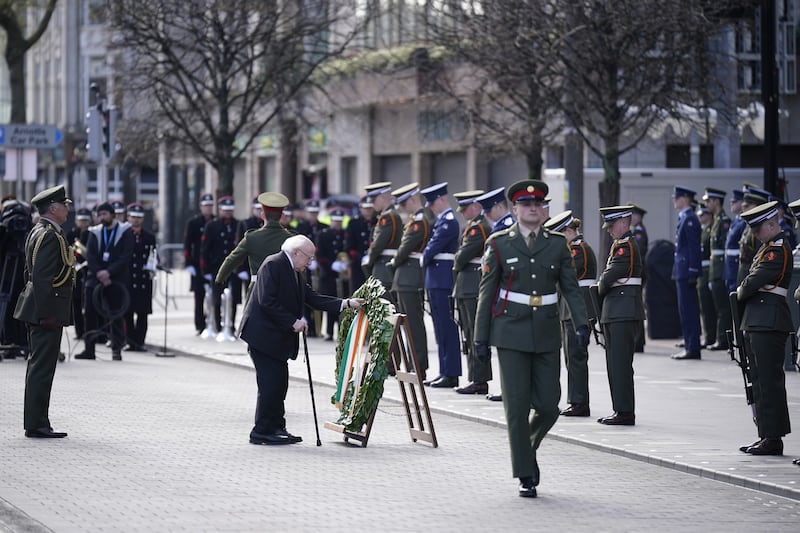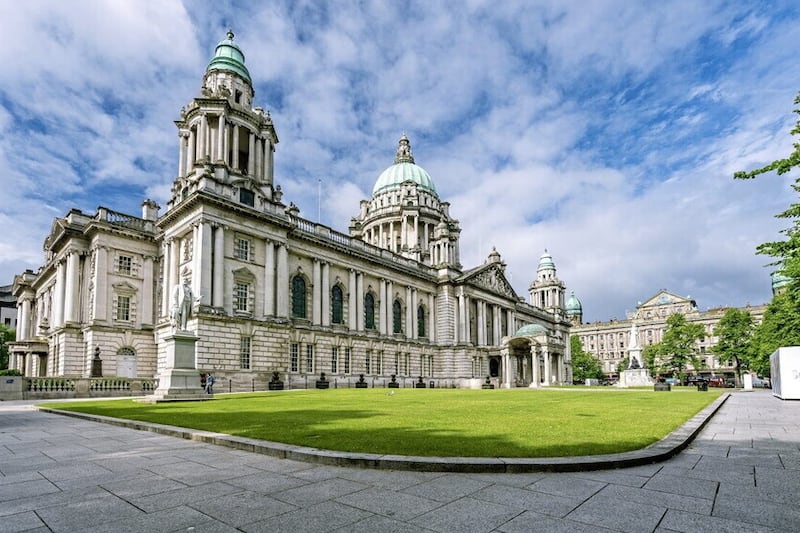The great advantage in making a political speech here is that while it will almost certainly annoy one side, it will inevitably please the other.
It was therefore something of an achievement for our president, Michael D Higgins, to recently deliver a speech in Enniskillen, which annoyed everyone equally.
In advocating integrated education, he antagonised the DUP (no bad thing), offended the Catholic Church (presumably condemning himself to eternal damnation), upset the UUP (which is easily done), perturbed the Presbyterian Church (which politely described his speech as “unfortunate”) and was accused by the Loyalist Communities Council of interfering in another country’s affairs (although until they put an apostrophe in their title, their views on education cannot be taken seriously).
Michael D made two mistakes. He did not know that, ironically, integrated education is a divisive topic and, like many visitors here, he naively believes that schools can end sectarianism, even though it is enshrined in law in Stormont.
There is very little practical support for integrated education: only 7 per cent of children attend integrated schools.
However, it has substantial theoretical support (usually above 70 per cent) which places it somewhere between motherhood and apple pie. Like heaven, we would all like to see it, but not just yet.
As a result, an Alliance bill to legally set minimum targets for children in integrated schools, supported by dedicated funding, is unlikely to become law.
The president might have more reasonably called for an integrated Stormont, where MLAs currently have to effectively declare their religion. He might also have pointed out that the main political parties here have a vested interest in perpetuating sectarian division (how else would they gain power?)
Perhaps Michael D’s greatest misunderstanding was highlighting the dangers of “a biased curriculum”, even though all schools follow the same curriculum. He then said that “matters concerning sexuality education would be a good place to achieve” what he called “a consensus for curriculum reform”. (At that point it was clear that he had not just lost the plot, he never had one in the first place.)
This was an attempt at a popular speech by advocating “peace-building” which, like “reaching out” is part of that populist piffle used by grandstanding politicians to suggest their moral superiority. In the real world, people here of all religions and none live and work together without patronising claims of reaching out or peace-building.
Of course there is a strong case for examining the complex role of education in our society, including integrated education. For example, our schools are not only divided by religion, they are also segregated socially by the apartheid of academic selection. (There is a good speech in that one.)
There is another speech in asking if religion should be taught in schools. For example, if the aim of Catholic schools is to perpetuate the Catholic faith, then they are failing badly.
While the Church teaches that issues such as divorce, same sex marriage and abortion are grave sins, they are now accepted as the norm by a majority of Catholics, as indicated by their electoral support for parties which advocate them.
So what is religious segregation in schools achieving, especially since it does not exist in two other areas of education?
Schools for children with special learning needs are not segregated and while 16-18 year olds are segregated in grammar schools, post-16 students in further education are not. Are the souls of apprentice plumbers somehow less worthy than those of aspiring doctors and accountants? (Now, there’s an interesting speech.)
President Higgins has a fine reputation as a scholar, Gaeilgeoir and activist on a wide range of social and cultural issues at home and human rights abroad.
He will always be welcome here, but like many in the south, he needs to be better informed on northern society. When he is, he might like to return and use his skills to offer an informed critique of our education system. It certainly needs one.









